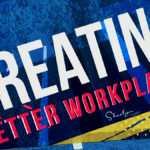This week, I’ve been responding to comments/questions from a reader’s letter. During this last installment, I want to discuss the topic of certifications. In the original letter, the reader asked about programs focusing on the PHR/SPHR – which is a certification for human resources professionals.
But before I answer that part of the question, I’d like to talk about certifications in general. There are three kinds of certifications out there:
- A certification that includes licensure (i.e. lawyers are a good example)
- A certification that doesn’t have a licensure requirement (like the PHR/SPHR example above)
- A certificate program – which isn’t a certification (but many people confuse the two)
There’s really only one question you need to ask yourself when it comes to obtaining certification. And, if you answer yourself honestly…it will tell you everything you need to know. The question is: Why are you getting certified?
And, the answer should always be: because I want to . . .
- Because I want to demonstrate my knowledge of my profession.
- Because I want to set myself apart from others in my industry by obtaining a credential.
- Because I want to use the studying process to learn more about my field.
- Because I want to make a commitment to a career of lifelong learning via the recertification process.
- Etc. Etc. You get the point.
Being certified might help you open doors or move your resume to the top of a stack but it will never mean more to anyone else than it does to you. That’s why you shouldn’t get talked into certification.
Get certified because you want to. Stay certified because you want to.
Alrighty now, focusing back to the question about certification study programs. There are lots of different ways to study – you can do it alone, local SHRM chapters hold study classes, and local colleges and universities have programs. For more information, check out the Society for Human Resource Management (SHRM) workshops and study materials or the HR Certification Institute (HRCI) website.
I hope you’ve enjoyed reading this series because I’ve really enjoyed writing it. It’s interesting to hear what’s on your mind and engage in conversation. Got any more questions for the Bartender? Just drop me a line here.







John Jorgensen says
It is true, get certified because you want to, not because someone says you have to. Means more, probably will lead to higher recert rate.
As usual, you hit the nail on the head.
Moses lopez says
Great article. Thanks for sharing your insights.
Angela says
Definitely. As a senior in college taking advantage of the student test-taking option before the 2011 changes, I’m taking the PHR in June because I want to gain more knowledge of the field beyond my HR and management classes and review what I’ve already learned. And, at the risk of sounding like a nerd, I’m more excited about my study plan and what I’m going to learn/apply in the future than actually passing the test (although I do intend to do so)!
Thanks for affirming that I am doing it for the right reasons — for me.
pasmuz says
Hi Sharlyn,
This was my response to a similar post on Rehaul’s guest post by
Rich DeMatteo. Nothing like co-opting my own thoughts:
Here is why I took the PHR exam:
Previous to receiving the certification, when I was between jobs, I had the experience–but I was considered a “B” candidate because of my education. I’m one of the folks who fell into HR. My degree is in History. “A” candidates were those with business degrees and experience.
I’m glad I did it because I really believe it helped me land a couple of key jobs that has brought me to this point now…in a HR role I love.
The test has a reputation for being difficult.
It shows that you are committed to learning about the profession. It used to be that once you past the test, you were a PHR for life. Now you have to recertify. To receive the proper credits, you have to continue to express your commitment to the profession. If you want to keep it, you have to continue to learn.
The interesting thing about the certification is the debate over its worthiness. I see both sides. For me, I’m glad I got it. I’m proud of it. It works for me. At the end of the day that’s all that matters.
I agree, take it for the right reason: because you want to.
Rich DeMatteo says
Great post – I just took and passed my PHR cert on 12/12. My grad program requires us to to pass the PHR before graduating. So, I was fortunate to kill two birds with a single stone last Saturday.
However, I question the PHR in my head, and my troubles lead me to writing a guest post over at Lance’s Rehaul.com. A lot of people weighed in with their opinion on the significance of the test and why it’s important to take it.
Many talked about how they most want to or have taken the PHR/SPHR in order to get a one up on other candidates. Others believed it was to commit to HR and prove they are serious about this profession.
I think everyone has their own path, but if they don’t have a reason like the ones you have mentioned, then why are they taking it?
HRJEFE says
I’ve never felt the need to obtain the SPHR certification and here’s why. I fell into HR and learned as I went along. I do not have a degree in HR but did take classes to obtain an HR certification from UCLA extension.
After that experience, where I could basically teach all the classes I was in, I realized that the only reason I would ever get another certification is to let others know that I know HR. Well, I decided that I don’t care about that and that they would learn by talking with me whether or not I knew HR.
I’m not knocking SHRM or others in HR that want/need that certification. It’s just for me it will not add anything to my professional standing or knowledge and I’m ok with that.
hr bartender says
Thanks everyone for the comments and sharing your personal experiences. Countless hours have been spent debating certifications. A certification is valuable if the person getting it believes so. And, there will be many talented professionals who will choose not to certify. For the same reason…because they don’t want to.